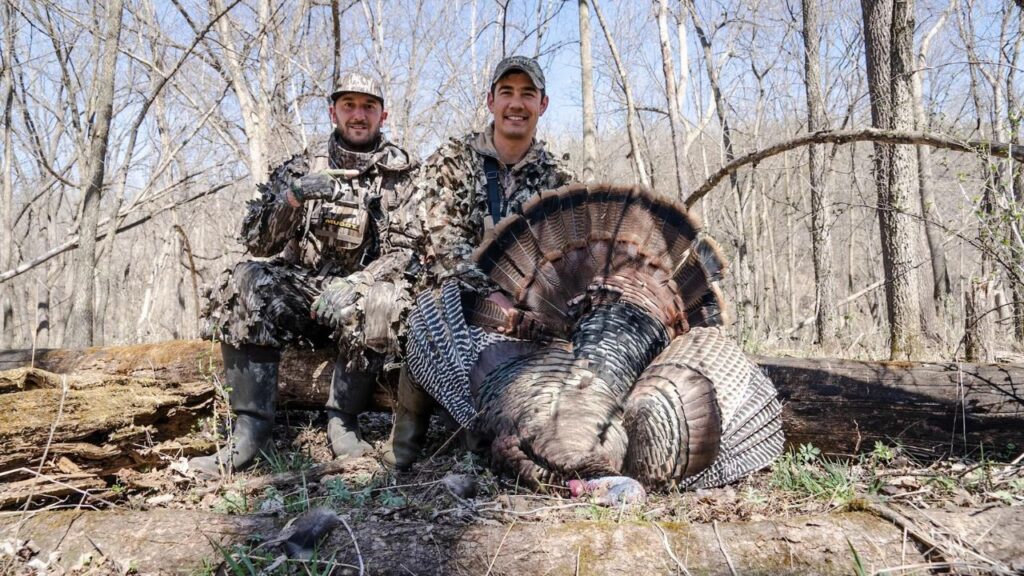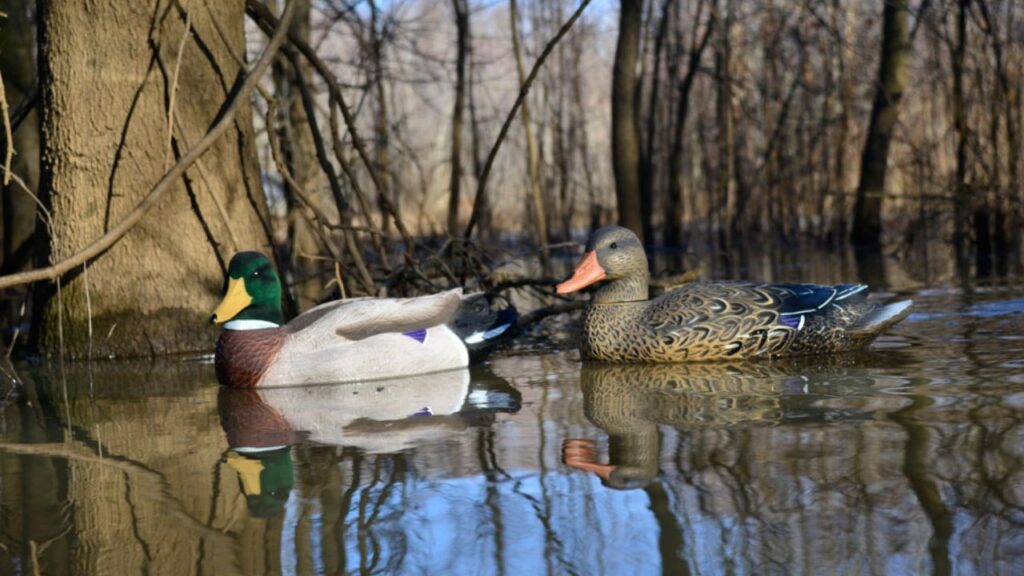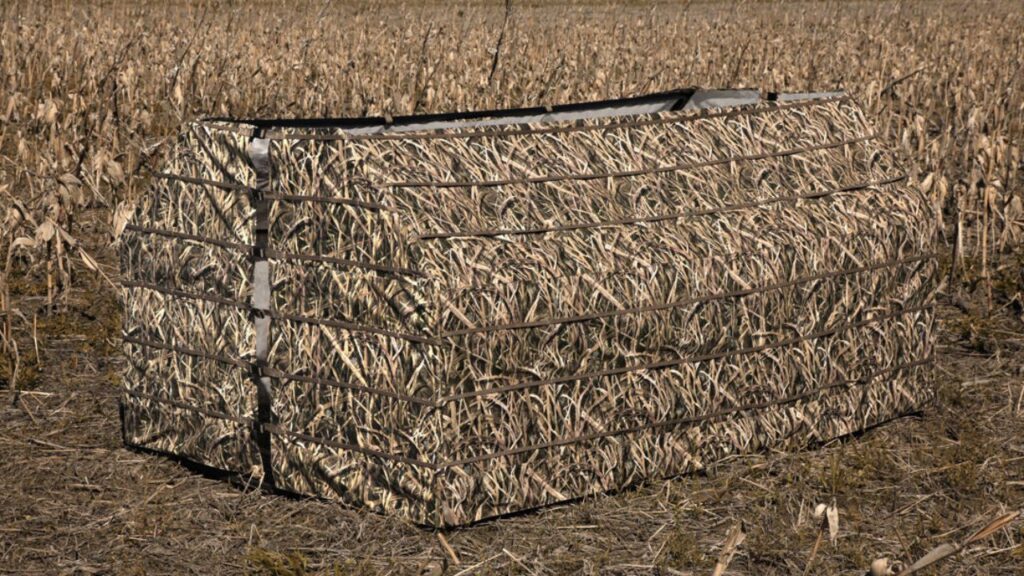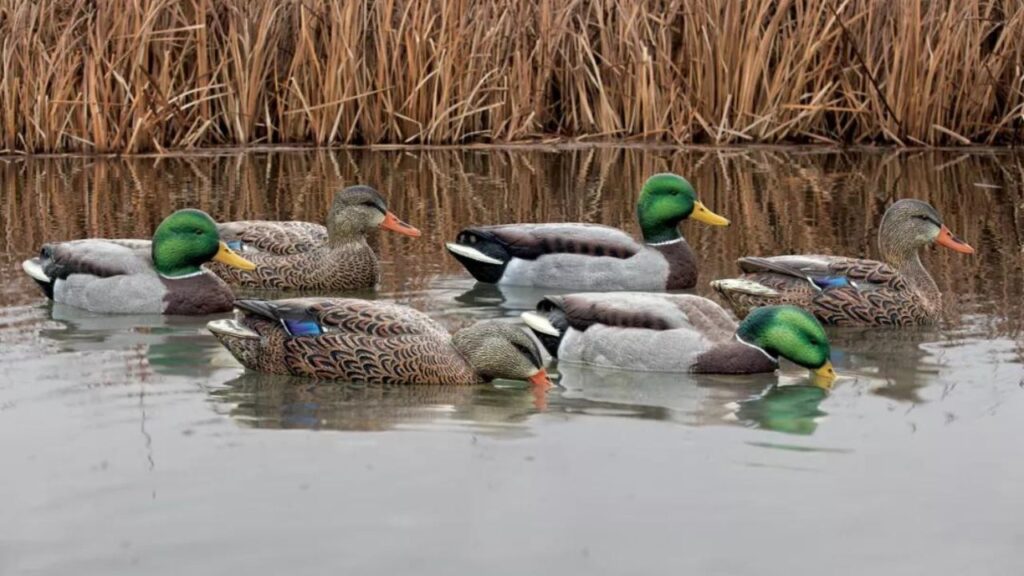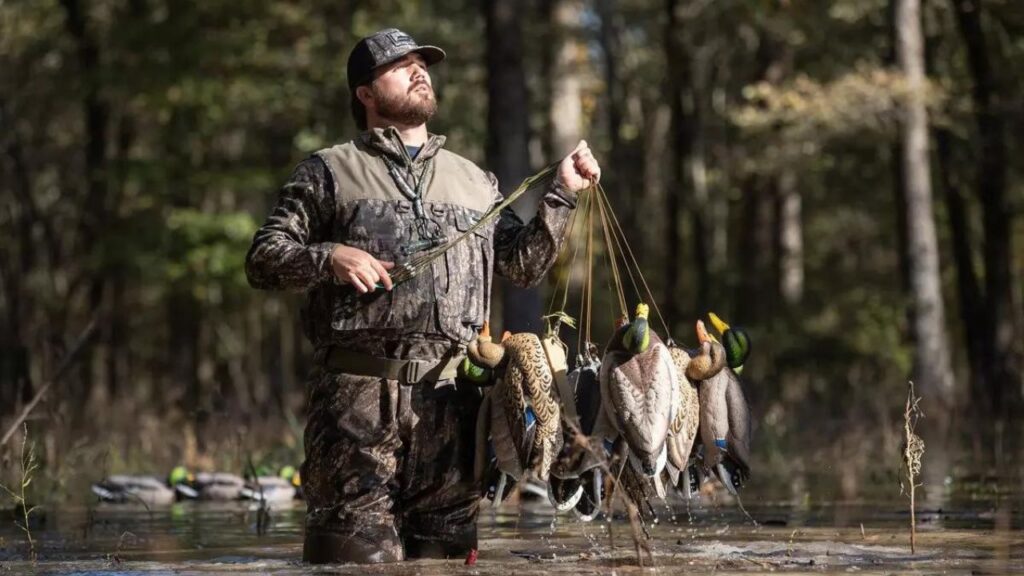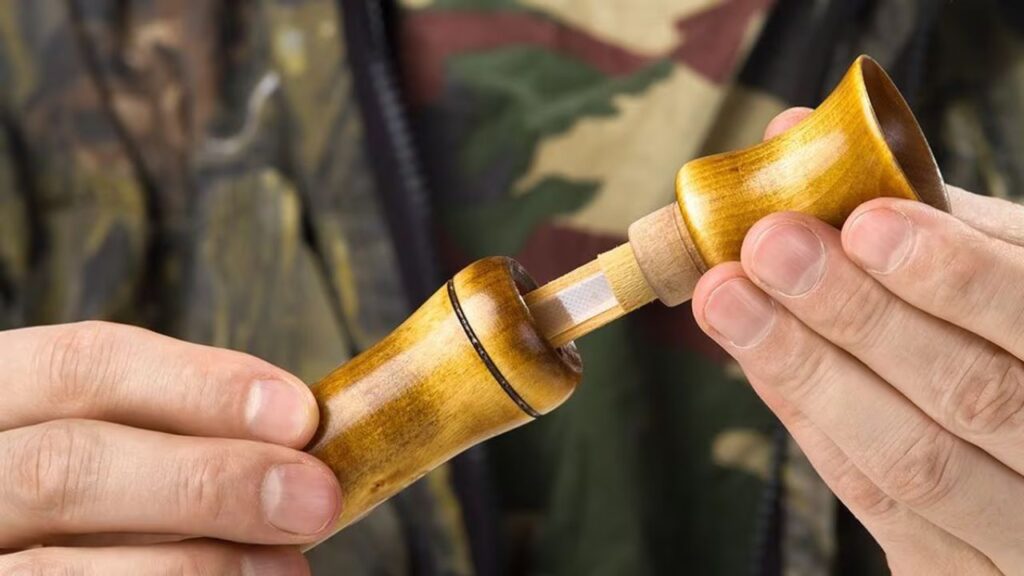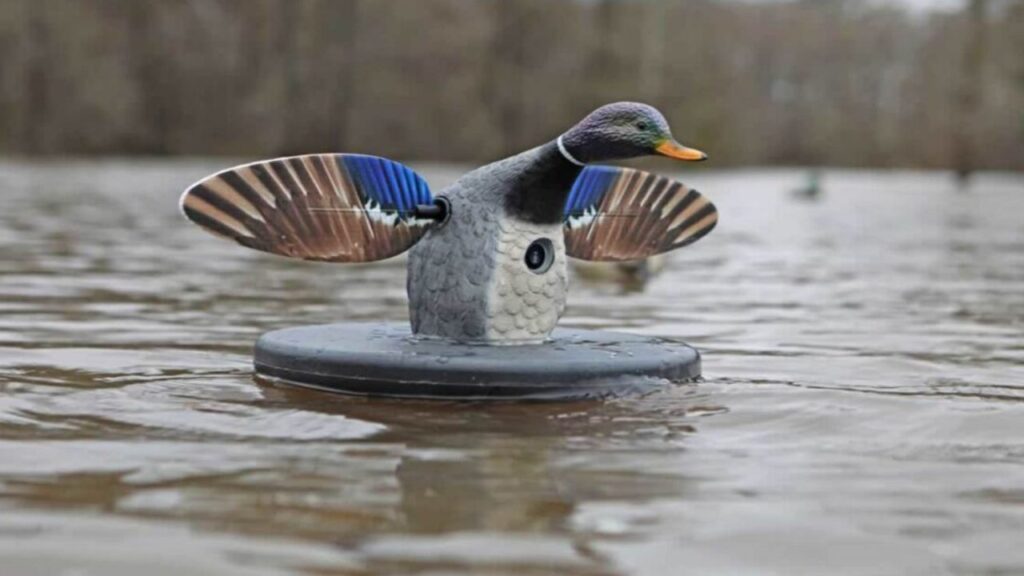Embarking on the exciting journey of duck hunting in the picturesque landscapes of Maryland is not just a sport; duck hunting in maryland guides is a rich cultural experience that unites enthusiasts with the state’s natural beauty.
This comprehensive guide is tailor-made for beginners eager to immerse themselves in the world of duck hunting in Maryland. It offers essential ideas, tips and knowledge to ensure a satisfying and successful adventure.
As we navigate the following sections, we’ll unravel the diversity of duck species that grace Maryland’s skies, delve into the licenses and regulations to legally begin your hunting adventure, and explore the crucial equipment needed for a triumphant exit.
From selecting the perfect hunting spot to understanding the intricacies of duck behavior, we’ve got you covered. Safety measures, ethical considerations, and expert advice will pave the way for a rewarding and responsible trip to Maryland’s duck hunting domain.
So, get ready and join us as we arm you with the knowledge to navigate Maryland’s bodies of water, decode the laws and ethics surrounding duck hunting, and share insider tips for success.
Whether you’re a novice or looking to hone your skills, this guide is intended to be your go-to companion, ensuring that your Maryland duck hunting experience is not just an adventure but a tradition to cherish.
Understanding Maryland Duck Species

Maryland’s diverse landscapes offer a refuge for a variety of duck species, making it a prime destination for waterfowl enthusiasts.
Common species that sea duck hunting guides maryland frequent the state include the mallard, wood duck, black duck, gadwall, and northern pintail.
These Maryland’s waterfowl season migratory birds paint the skies with their vibrant plumage, creating a spectacle for hunters and nature lovers alike.
Seasonal variations play a critical role as ducks migrate through Maryland. Fall and winter see an influx of waterfowl, turning marshes, ponds and coastal areas into bustling centers of avian activity.
Understanding these patterns is essential to planning successful hunts and aligning with state-regulated hunting seasons.
The mallard, with its distinctive coloration, is a predominant inhabitant, while the striking radiance of the wood duck adds a touch of brightness to the wetlands.
Black ducks, often found in coastal areas, provide another challenging hunting opportunity. Recognizing these species and their behaviors becomes paramount for beginners as it provides a foundation for an enriched Maryland duck hunting adventure.
As we delve deeper into this direction, we will unravel the complexities of each species, providing a comprehensive understanding that will prove invaluable when searching for waterfowl in Maryland’s stunning landscapes.
Licenses and Regulations
Before embarking on the exciting adventure of duck hunting in Maryland, it is essential to familiarize yourself with the licenses and regulations that govern this traditional sport.
Obtaining best duck hunting in maryland the necessary licenses is the first step, ensuring compliance with state and federal mandates.
In Maryland, hunters typically need a Maryland Migratory Game Bird Stamp, along with a resident or non-resident hunting license.
Federal regulations, enforced by the U.S. Fish and Wildlife Service, also require a Federal Migratory Bird Hunting and Conservation Stamp, generally known as a Duck Stamp.
Understanding the complexities of hunting seasons is essential. Maryland waterfowl seasons are carefully structured to conserve bird populations while providing ample hunting opportunities.
The regulations specify the types and quantities of ducks that can be taken, as well as the permitted hunting methods.
Also, familiarize yourself with the designated hunting areas and any specific rules that may apply.
Staying informed about bag limits, hunting hours, and prohibited species ensures legal hunting and contributes to conservation efforts that support Maryland’s vibrant waterfowl populations.
As we guide through this guide, we will delve into these licensing requirements and regulations, providing beginners with the knowledge necessary for a legal and enjoyable Maryland duck hunting experience.
Essential Duck Hunting Gear
Mastering the art of duck hunting in Maryland requires m
 ore than just skill duck hunting in maryland guides prices needs the right equipment to navigate the diverse landscapes and ever-changing conditions.
ore than just skill duck hunting in maryland guides prices needs the right equipment to navigate the diverse landscapes and ever-changing conditions.
Whether you are a beginner or an experienced hunter, having the right equipment is crucial to a successful and enjoyable experience.
Firearms and ammunition:
Select a shotgun suitable for waterfowl hunting, usually 12 or 20-gauge. Make sure duck hunters is capable of handling various loads, as ducks can be found at different distances.
Clothes and accessories:
Invest in insulated and water-resistant clothing to stay comfortable in Maryland’s variable climate. Quality waders are essential for navigating the wetlands, while a good hat, gloves and camouflage clothing improve concealment.
Lures:
The right decoys attract ducks to your hunting spot. Consider a combination of species-specific decoys to create a realistic environment. Make sure they are durable and easily deployable.
Duck calls:
Mastering duck calls is an art. Choose a reliable call and practice different tones to imitate the sounds of various duck species. This susquehanna river duck hunting guides skill is invaluable in attracting ducks to your location.
Blinds and Leather:
Invest in a portable blind for concealment or use a natural environment to create a hiding place. Proper concealment is crucial to a successful hunt.
Dog and dog equipment:
If you hunt with a retriever, make sure your dog is well-trained. Equip them with a suitable vest for their safety and a reliable duck leash.
Navigation tools:
Carry a map, compass, or GPS device to navigate Maryland’s bodies of water. Familiarize yourself with the hunting area so you stay aware of the situation.
Safety equipment:
Prioritize safety with essentials like hearing protection, shooting glasses, and a reliable floating device if you hunt on the water.
As we delve deeper into the world of duck hunting in Maryland, each of these components of equipment will be explored in detail, giving beginners a comprehensive understanding of what it takes to be well-equipped for a successful duck hunt—aquatic birds.
Choosing the Right Hunting Spot
Selecting the ideal hunting location is a critical factor that can seriously affect the result of your Maryland duck hunting expedition.
From sprawling marshes to serene coastal areas, the state offers diverse landscapes, each with its unique challenges and opportunities. Here is a guide on how to make the right decision:
Research popular locations:
Identify renowned duck hunting locations in Maryland. Do your research online, check local hunting forums, and talk to experienced hunters to learn about productive areas.
Understanding duck behavior:
Ducks are creatures of habit. Know your eating and resting patterns. Select places where ducks frequent, considering their flight paths during different times of the day.
Seasonal considerations:
Maryland experiences different seasons, each of which influences duck behavior. Research how waterfowl migrate through the region and choose locations that align with their movements during the fall and winter.
Legal limits:
Make sure you are well aware of the legal limits and designated hunting areas. Familiarize yourself with state and federal regulations to avoid legal complications.
Accessibility:
Choose locations that are easy to access. Consider the distance from your residence, the difficulty of the terrain, and whether you need a boat to get there.
Exploration trips:
Take scouting trips before hunting season begins. Observe duck activities, study the terrain, and identify potential hiding places for blinds or hides.
Water depth and conditions:
Ducks prefer different depths of water. Select locations with the right balance of shallow and deep water. Consider weather conditions and how they may affect water levels.
Environmental factors:
Pay attention to wind direction, sunlight, and general weather conditions. Ducks usually choose places with favorable winds to take off and land.
Proximity to food sources:
Locate areas near natural food sources, such as submerged aquatic vegetation or grain fields. Ducks are more likely to frequent places with abundant food.
Hunting Techniques for Beginners
Duck hunting in Maryland requires a combination of skill, strategy, and understanding of waterfowl behavior. For beginners eager to perfect their craft, adopting effective hunting techniques is paramount.
Here is a guide to help you navigate the complexities of duck hunting in Maryland:
Duck Calling Basics:
Mastering duck calls is an essential skill. Learn basic calls, such as squawking, laughing, and greeting calls. Practice different pitches and pitches to accurately imitate various duck sounds.
Lure Placement:
Properly arrange your decoys to create a realistic and attractive environment. Use a combination of species-specific lures and pay attention to spacing and positioning, taking into account wind direction for authenticity.
Blind or hidden configuration:
Concealment is key to a successful hunt. Install your blind or hide strategically, blending into the natural environment. Make sure it provides ample coverage to maintain your line of sight.
Understanding wind and weather:
Ducks are very sensitive to wind and weather conditions. Position yourself with the wind at your back to spread the lure successfully. Pay attention to weather forecasts and how they may affect duck behavior.
Patience and stillness:
Ducks are cautious creatures. Exercise patience and stay still in your hiding place. Sudden movements can alert them to danger. Use minimal, slow gestures while waiting for the perfect shot.
Shot Placement
Target vital areas to ensure ethical and humane kills. Practice proper shot placement, aiming for the head or neck for a clean, effective harvest.
Understanding duck behavior
Study duck behavior, recognizing their feeding, resting, and communication patterns. This knowledge allows you to predict their moves and adjust your strategy accordingly.
Group hunting dynamics
If hunting in a group, establish clear communication and coordination. Assign roles, such as primary caller and triggerer, to maximize efficiency.
As we delve into the nuances of duck hunting in Maryland, we will explore each of these techniques in detail, providing practical ideas and tips to empower beginners on their journey to becoming skilled waterfowl hunters.
Maryland Duck Hunting Laws and Ethics
Participating in duck hunting in Maryland is not only an exciting activity but also a responsibility governed by laws and ethical considerations.
Understanding and complying with these regulations ensures not only a legal experience but also contributes to the conservation and sustainability of waterfowl populations.
Here is a complete guide to Maryland duck hunting laws and ethics:
Laws:
License requirements:
Familiarize yourself with Maryland licensing requirements. Obtain the necessary permits, including the Maryland Migratory Game Bird Stamp, a resident or non-resident hunting license, and the Federal Migratory Bird Hunting and Conservation Stamp (Duck Stamp).
Hunting seasons and bag limits:
Observe designated hunting seasons and adhere to specified bag limits. Maryland waterfowl seasons are meticulously regulated to protect duck populations during critical periods.
Firearm Safety:
Practice safe handling of firearms. To avoid accidents, make sure your shotgun meets legal specifications and follows all safety guidelines.
Hunting Areas and Zones:
Respect the areas and zones designated for hunting. Be aware of restricted areas or private land and always obtain proper permits before entering private property.
Species-specific regulations:
Understand the regulations specific to each duck species. Some species may have unique restrictions or protections, and accurately identifying them is crucial.
Non-toxic vaccine requirements:
Comply with the use of non-toxic shots, such as steel or other approved alternatives. To avoid environmental pollution, the use of lead shot in waterfowl hunting is prohibited.
Ethics:
Fair pursuit and respect:
Embrace the principles of fair chase. Avoid unethical practices such as baiting or harassing ducks. Please respect wildlife and fellow hunters to maintain the integrity of the hunting experience.
Recover all fallen birds:
Recover all fallen birds, even if they fall on challenging terrain. Ethical hunters strive to minimize waste and ensure a quick and humane harvest.
Leave no trace:
Practice Leave No Trace principles. Remove all trash, spent casings and other debris. Preserve the natural beauty of Maryland’s landscapes for future generations.
Hunting etiquette:
Follow established hunting etiquette. Communicate effectively with other hunters, maintain a safe distance, and avoid interfering with others’ hunting experiences.
Conservation efforts:
Contribute to conservation efforts—support organizations dedicated to the preservation of wetlands and waterfowl habitats. Participate in habitat restoration projects when possible.
By adhering to these laws and ethical standards, Maryland duck hunters play a crucial role in safeguarding the atmosphere and ensuring the sustainability of this time-honored tradition.
As we explore these aspects in more detail, beginners will gain a comprehensive understanding of their responsibilities as ethical, law-abiding participants in the world of Maryland duck hunting.
Tips for a Successful Duck Hunt
Achieving duck hunting success in Maryland involves a combination of skill, strategy, and understanding of waterfowl behavior. Here are essential tips to improve your chances of a successful exit:
Scouting pays off
Invest time in preseason scouting. Identify duck habitats, feeding areas and flight patterns. A well-informed hunter is better positioned to succeed.
Concealment is key
The ducks have very keen eyesight. Make sure your blind or blind blends seamlessly into the surroundings. Camouflage clothing, proper concealment, and minimizing movement are vital.
Master Duck Calls
Hone your duck-calling skills. Practice various calls to imitate different species and situations. A compelling call can bring ducks into range for a successful shot.
Decoy Realism
Pay attention to the placement of the decoys. Mix in species-specific lures, create a natural space and consider wind direction. Realistic decoys attract ducks for better opportunities.
Climate awareness
Stay alert to weather conditions. Ducks respond to climate changes, and understanding their behavior in different conditions improves your hunting strategy.
Time matters
Calculate your hunts strategically. Ducks are usually most active during the first and last light of day. Plan your outings accordingly to take advantage of optimal hunting periods.
Choose quality equipment:
Invest in reliable equipment, from firearms to decoys. Quality equipment improves your performance and ensures a smoother hunting experience.
Patience and observation:
Practice patience and keen observation. Ducks can be unpredictable, and being in tune with their behavior allows you to make informed decisions while hunting.
Stay hidden during installation:
Be discreet when setting up. Minimize noise and movement during decoy placement and blind setting to avoid alerting ducks to your presence.
Continuous learning:
Adopt a learning mindset. Seek advice from experienced hunters, attend workshops and adapt your techniques based on observations. Successful duck hunting is a continuous learning process.
By incorporating these tips into your Maryland duck hunting approach, you will not only increase your chances of success but also deepen your appreciation for the complexities of waterfowl hunting in this diverse and captivating region.
Conclusion
As we conclude this comprehensive guide for beginners venturing into the realm of duck hunting in Maryland, it is clear that this activity is more than a sport; it is an immersive experience intertwined with the state’s natural beauty and waterfowl heritage.
Armed with knowledge of duck species, licensing, equipment essentials, and ethical considerations, you are prepared to embark on a rewarding journey.
From the enchanting calls that echo across the wetlands to the excitement of a successful harvest, Maryland offers a canvas for waterfowl enthusiasts to paint their stories.
Understanding the nuances of choosing the right hunting location, mastering the techniques, and respecting laws and ethics further enrich this adventure.
Remember, the key is not just in the harvest but in the moments spent in the wilderness, the camaraderie of fellow hunters, and the conservation efforts that support Maryland’s diverse ecosystems.
Whether you’re a novice hunting for your first duck or an experienced hunter honing your duck skills, may every outing contribute to the legacy of duck hunting in Maryland.
So, prepare yourself, sea duck hunting guides maryland embrace the challenges, and savor the moments that only a Maryland duck hunting experience can bring you.
May your calls echo through the marshes and your blinds witness countless successful harvests in the captivating landscapes of Maryland. Happy hunting!
FAQ
Is there good duck hunting in Maryland?
Located directly in the center of the Atlantic Flyway, Maryland is soaked in duck and goose hunting practice, and the Eastern Shore is house to some of the most suitable waterfowl hunting anywhere.
Is Maryland a good hunting state?
This is one of the crown jewels of the Northeast, and it gets an A. Maryland has more than 200,000 whitetails, and it’s a good deer-hunting state.


